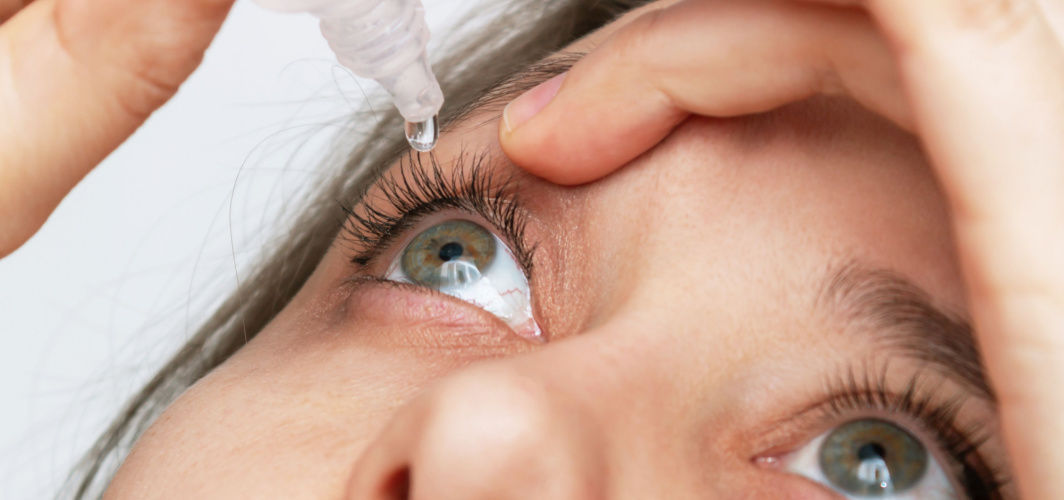General Health
Precautions And Home Management Tips To Treat Conjunctivitis
7 min read
By Apollo 24|7, Published on - 03 August 2023, Updated on - 17 July 2024
Share this article
0
1 like

Conjunctivitis, also known as pink eye, is a common and highly contagious eye condition that causes inflammation of the conjunctiva, the thin membrane that covers the white part of the eye. It can be caused by viruses, bacteria, allergies, or irritants. In this article, we will delve into the precautions and home management tips for conjunctivitis.
Causes of Conjunctivitis
Some of the common causes of conjunctivitis include:
- Exposure to an infection-causing virus or bacterium.
- Allergies to pollen, dust mites, pet dander, or certain medications can also lead to conjunctivitis.
- Irritants like smoke, chlorine in swimming pools, and exposure to chemicals can trigger conjunctivitis.
- Newborns can acquire conjunctivitis during delivery if the mother has a sexually transmitted infection.
Types of Conjunctivitis
Viral Conjunctivitis
- Usually caused by the same viruses that cause the common cold.
- Highly contagious and spreads easily through direct contact with infected individuals or contaminated surfaces.
- Watery discharge, redness, and itching are common symptoms.
Bacterial Conjunctivitis
- Caused by bacteria such as Staphylococcus aureus or Streptococcus pneumoniae.
- Contagious and can spread through direct contact or contaminated objects.
- Symptoms include sticky yellow or green discharge and crusty eyelashes.
Allergic Conjunctivitis
- Triggered by allergens like pollen, dust mites, or pet dander.
- Not contagious but can be bothersome.
- Symptoms include itching, redness, and watery discharge.
Symptoms of Conjunctivitis
Some of the common symptoms of conjunctivitis include:
- Redness in the white part of the eye or inner eyelid
- Itching or burning sensation
- Excessive tearing or watery discharge
- Sensitivity to light
- Gritty feeling in the eyes
- Crusting of eyelashes
- Swollen lymph nodes in front of the ears
Precautions to Prevent the Spread of Conjunctivitis
A. General Hygiene Practices
Here are some general hygiene practices to follow:
1. Frequent Handwashing
Wash your hands thoroughly with soap and water for at least 20 seconds. This helps remove any bacteria or viruses that may be on your hands.
2. Avoiding Touching the Eyes
Try to avoid touching or rubbing your eyes, as this can spread the infection from one eye to the other or to other people.
3. Proper Disposal of Tissues or Wipes
If you need to use tissues or wipes to clean your eyes, make sure to dispose of them properly in a closed bin. Avoid leaving used tissues lying around where others can come into contact with them.
B. Personal Hygiene Measures
1. Avoiding Sharing Personal Items
Avoid sharing personal items such as towels, washcloths, eye makeup, or contact lenses with others. This can help minimize the risk of spreading the infection.
2. Cleaning and Disinfecting Surfaces
- Clean and disinfect frequently touched surfaces such as doorknobs, light switches, and countertops regularly. Use disinfectant wipes or sprays that are effective against viruses.
- Wash any objects that come into contact with your eyes, such as glasses or sunglasses, in warm soapy water.
3. Changing Pillowcases and Towels Regularly
Change your pillowcases and towels regularly to avoid re-infection. Use hot water and detergent to wash them thoroughly.
Home Management Tips for Conjunctivitis
1. Apply Warm Compresses
Gently press a clean cloth soaked in warm water against your closed eyelids. This can help relieve itching and reduce inflammation.
2. Use Artificial Tears or Lubricating Eye Drops
These over-the-counter eye drops can provide temporary relief from dryness and soothe the eyes.
3. Avoid Contact Lenses
If you wear contact lenses, it's important to temporarily switch to glasses until your symptoms improve. Contact lenses can worsen irritation and prolong the healing process.
4. Eat Foods Rich in Vitamins A, C, and E
Include foods rich in vitamins A, C, and E in your diet as they have antioxidant properties, which help boost the immune system & aid in faster healing. Foods like carrots, spinach, oranges, strawberries, and almonds are good sources of these vitamins.
5. Add Foods with Omega-3 Fatty Acids
Incorporate foods with omega-3 fatty acids into your meals. Omega-3 fatty acids have anti-inflammatory properties that can help reduce eye inflammation associated with conjunctivitis. Foods like salmon, walnuts, flaxseeds, and chia seeds are rich in omega-3 fatty acids.
6. Fluid Intake and Hydration
Maintain adequate fluid intake to stay hydrated. Drinking plenty of water and fluids helps flush out toxins from the body and keeps the eyes lubricated.
7. Limit Screen Time and Eye Strain
Reduce the amount of time spent on electronic devices such as smartphones, tablets, and computers, as these can cause eye strain. Take regular breaks to rest your eyes and focus on distant objects to reduce eye fatigue.
8. Using Protective Eyewear in Outdoor Environments
Wear sunglasses or protective goggles when you're outdoors to shield your eyes from allergens, dust, and other irritants. Avoid swimming in chlorinated pools until the infection clears up, as chlorine can worsen symptoms.
When to Consult a Doctor?
While most cases of conjunctivitis can be managed at home, there are warning signs and complications of conjunctivitis that require medical attention. It is important to consult a healthcare professional if:
- You experience severe pain or sensitivity to light.
- Your vision becomes blurry or distorted.
- Symptoms worsen or do not improve after a week.
- You have a weak immune system or a pre-existing eye condition.
If you experience any of the above symptoms or if your condition does not improve after a few days of home management, it is essential to consult a healthcare professional for a proper diagnosis and appropriate treatment options.
Treating Conjunctivitis at Home
There are several ways to treat conjunctivitis at home:
1. Over-the-Counter Medications for Symptom Relief
- Artificial tears: These lubricating eye drops can help relieve dryness, irritation, and redness.
- Antihistamine eye drops: If allergies cause your conjunctivitis, these eye drops can help reduce itching and redness.
- Nonsteroidal anti-inflammatory drugs (NSAIDs): These eye drops can help reduce inflammation and relieve pain.
2. Prescription Medications for Severe Cases
- Antibiotic eye drops or ointments: If your conjunctivitis is bacterial in nature, your doctor may prescribe antibiotic eye drops or ointments to help clear the infection.
- Steroid eye drops: In cases of severe inflammation, your doctor may prescribe steroid eye drops to reduce swelling and redness.
3. Proper Administration of Eye Drops or Ointments
- Wash your hands thoroughly before applying any medication.
- Tilt your head back slightly and pull down your lower eyelid to create a small pocket.
- Squeeze the prescribed number of drops or apply a small amount of ointment into the pocket.
- Close your eyes gently for a few seconds to allow the medication to spread evenly across the surface of your eyes.
Special Precautions for Different Age Groups
1. Conjunctivitis in Children
- Wash your hands thoroughly before and after touching your child's eyes.
- Teach your child to avoid touching their eyes and to wash their hands regularly.
- Use a clean, damp cloth or cotton ball to gently clean away any discharge from your child's eyes.
- Avoid sending your child to daycare or school until the infection has cleared.
- Consult a doctor before using any eye-drop or ointment.
- Discourage sharing of personal items like towels, pillowcases, and eye makeup.
2. Conjunctivitis in Adults and Elderly Individuals
- Practice good hygiene by washing your hands frequently.
- Avoid touching or rubbing your eyes.
- Use artificial tears or lubricating eye drops to soothe any discomfort.
Preventing Conjunctivitis Recurrence
You can prevent the recurrence of eye flu by following these measures:
- Avoid touching or rubbing your eyes unnecessarily.
- Use clean tissue or cloth to wipe away any discharge from the eyes.
- Do not share towels, cosmetics, or contact lenses with others.
- Wash your hands frequently with soap and water, especially before and after touching your eyes or applying any eye drops or ointments.
- Avoiding contact with infected individuals.
- If you are infected, avoid close contact with others to prevent the spread of the infection.
Takeaway
There are several precautions and home management tips that can help alleviate symptoms of conjunctivitis and speed up the healing process. However, it is important to note that these home remedies should not replace medical advice or professional treatment. It is crucial to seek medical advice if symptoms worsen or if you have severe pain, vision changes, or persistent redness. Early detection and prompt treatment are essential for managing conjunctivitis effectively and preventing complications. If you experience the signs of eye flu, talk to a specialist.
General Health
Consult Top Ophthalmologists
View AllLeave Comment
Recommended for you
.jpg?tr=q-80)
General Health
Vitamins for Hair Growth and Thickness: Essential Nutrients for Fuller, Healthier Hair
Discover the best vitamins for hair growth and thickness. Learn how essential nutrients like biotin, vitamin D, and iron promote healthier, fuller hair. Boost your hair care routine with these vital vitamins for stronger, more vibrant locks!

General Health
Hypocalcaemia: What Happens When Your Calcium Levels Are Too Low?
Hypocalcaemia is often the result of underlying health problems or medical treatments such as kidney failure, the surgical removal of the stomach, or the use of certain medications like diuretics. Moreover, it can also be a result of excess parathyroid hormone secretion or a high level of vitamin D. Know ways to treat and prevent it.

General Health
Is Drinking Ice-Cold Water Bad For Your Health?
Both cold and warm water can keep you hydrated and promote digestion, with no conclusive evidence to suggest that cold water is bad for the body. Read to know more.
Subscribe
Sign up for our free Health Library Daily Newsletter
Get doctor-approved health tips, news, and more.
Visual Stories

Could There Be More to Your Snore?
Tap to continue exploring
Recommended for you
.jpg?tr=q-80)
General Health
Vitamins for Hair Growth and Thickness: Essential Nutrients for Fuller, Healthier Hair
Discover the best vitamins for hair growth and thickness. Learn how essential nutrients like biotin, vitamin D, and iron promote healthier, fuller hair. Boost your hair care routine with these vital vitamins for stronger, more vibrant locks!

General Health
Hypocalcaemia: What Happens When Your Calcium Levels Are Too Low?
Hypocalcaemia is often the result of underlying health problems or medical treatments such as kidney failure, the surgical removal of the stomach, or the use of certain medications like diuretics. Moreover, it can also be a result of excess parathyroid hormone secretion or a high level of vitamin D. Know ways to treat and prevent it.

General Health
Is Drinking Ice-Cold Water Bad For Your Health?
Both cold and warm water can keep you hydrated and promote digestion, with no conclusive evidence to suggest that cold water is bad for the body. Read to know more.


